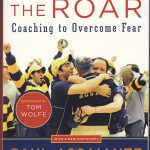Getting a worldwide handicap or rating system is hard. The U.S. golf handicap was created in 1911 but even today there are different systems in Great Britain and Ireland, in South Africa and in Australia. Tennis in America has had a rating system since 1979. In September 2000 the International Tennis Federation launched a worldwide system, the international tennis number, but it hasn’t been accepted everywhere yet.
Even in real tennis, a sport with about five thousand participants in just four countries, it took a centuries for a mathematical system to be adopted (in 1984) and then more struggle before a global, computerized one only was implemented in 2001. Even then there were pockets of resistance.
In squash, it is a mess. Last month I helped host and play in a match in Philadelphia against a team from England. Without a global ratings system, we were left to figure out who to match them up against in a way that is shockingly primitive in the twenty-first century. The extent of our information from the tour captain was:
Number 1 has played for England at U17 level (national standard) but just returned from Afghanistan though, so won’t be at the top of his game; Number 2-6 are good club level standard (UK County standard); Number 7-8 are average club level standard; Number 9-11 are below average club level standard.
We had trouble translating that and fielded a team that was too strong.
A decade ago, the U.S. adopted its ratings system.
Jim,
Hmm, ratings, grading, rankings, classifications, classements. From that you will anticipate that I am going to say that there are an array of systems.
Australia, for example, have a pennant competition with a ranking system called Matrix, New Zealand have gradings, the French and others have classement where they rank hundreds or thousands. I have dim memories of place where depending upon how high you play in a club team and in which division you are categorised. And then there is the various half points in USA.
Meanwhile personally I am part of a ranking system where I boast a position of three……in my home!
I have no knowledge of what, if anything, WSF has done historically in this area to encourage uniformity, but I think it would be a fruitless exercise as so much depends upon the local circumstances and systems that evolve to cater for them. For example, I used to run graded events in England and struggled to get entries, whereas they are very popular in NZ.
We also have to bear in mind that lower than county / state / regional level the value of these listings can be irrelevant for most players. If they play in their club league / ladder they know where they feature, and in all probability never play beyond their own club. Their league number is their ranking.
Of course, in an ideal world, for squash to somehow evolve a uniform system like golf’s rankings would be great, but there is no clamour and it would be problematic.
For now there are more important matters front and centre. No, not the minor matter of the Olympic bid but my tilt at second spot in my home!
Hope all goes well with you.
Regards
Andrew

 “A squash racquet court,” read the notes on the Titanic’s blueprints, “is provided on Deck F, and is in charge of a professional player. Tickets for the use of the Court may be obtained at the Enquiry Office 2s/2d [or 50 cents; about $15 in 2012] per half hour to include the services of the Professional if required. Balls may be purchased from the Professional who is also authorised to sell and hire racquets. The court may be reserved in advance by applicaton to the Professional in charge, and may not be occupied for longer than one hour at a time by the same players if others are waiting.”
“A squash racquet court,” read the notes on the Titanic’s blueprints, “is provided on Deck F, and is in charge of a professional player. Tickets for the use of the Court may be obtained at the Enquiry Office 2s/2d [or 50 cents; about $15 in 2012] per half hour to include the services of the Professional if required. Balls may be purchased from the Professional who is also authorised to sell and hire racquets. The court may be reserved in advance by applicaton to the Professional in charge, and may not be occupied for longer than one hour at a time by the same players if others are waiting.” Wright signed on for the daily wage of one shilling, depending for his livelihood on tips.
Wright signed on for the daily wage of one shilling, depending for his livelihood on tips.